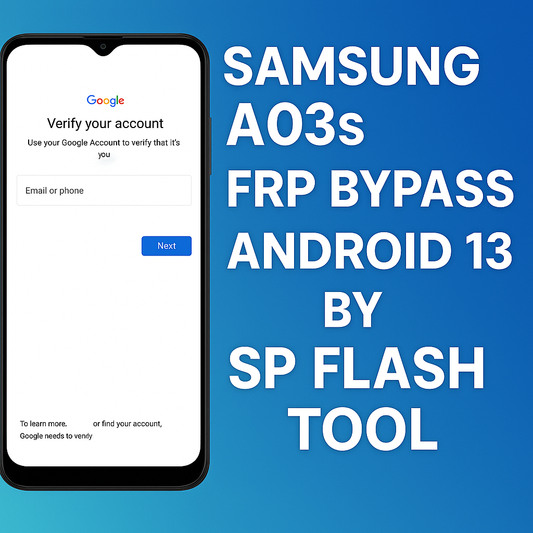Frequently Asked Questions
1. What are privacy phones and why are they important for businesses?
2. What are some key features to look for in a privacy phone?
3. How can utilizing privacy phones benefit a business?
4. What steps should be taken when selecting a privacy phone for a business?
5. What challenges might a business face when implementing privacy phones?
In today's increasingly digital world, organizations face a myriad of cybersecurity threats that can compromise sensitive data. As businesses rely more on mobile communication, ensuring information privacy has never been more crucial. This often leads companies to consider privacy phones, which are purpose-built for security. This article discusses the importance of privacy phones for business, particularly focusing on the features that matter and how options like the Samsung Galaxy A14 and CalyxOS fit into the landscape.
Understanding the Importance of Privacy Phones
Traditionally, mobile devices have served as gateways for communication. However, with the rise of cyber threats, the need for robust privacy measures has prompted a re-evaluation of how phones are used for business. Here are some key reasons why privacy phones are essential:
Secure Communication
The primary function of a privacy phone is to safeguard communication. End-to-end encryption ensures that messages remain confidential between intended recipients. Utilizing platforms that prioritize security, businesses can facilitate conversations without fearing interception.
Data Protection
Privacy phones are equipped with advanced data protection features, safeguarding sensitive business information from unauthorized access. Features like secure file storage and secure boot options help ensure that data is only accessible to authorized users.
Policy Compliance
Businesses are often subject to regulations related to customer data processing. Utilizing privacy phones increases compliance with data protection laws, reducing the risk of legal repercussions and enhancing trust with customers.
Key Features of Privacy Phones
When assessing which phone models best serve business privacy needs, certain features should be prioritized. Understanding these can greatly inform your purchasing decisions.
Operating System Security
The operating system plays a pivotal role in a device's overall security. Privacy-focused OS alternatives such as CalyxOS offer enhanced security features that default Android installations may lack. These OS options provide privacy-centric enhancements, ensuring your communications and data are secure.
Regular Updates
Security patches and updates are crucial for the longevity of a device's security. Privacy phones should provide regular updates to the operating system and pre-installed apps to protect against newly discovered vulnerabilities.
User Control
Privacy phones should empower users to control their data usage. Settings that allow users to manage permissions, track app requests, and choose when to share information are essential for maintaining privacy.
Benefits of Utilizing Privacy Phones in Business
Opting for privacy phones extends beyond just security; it also enhances your business operations in several ways.
Increased Trust from Clients
Customers and clients are increasingly aware of security risks. By employing privacy phones, businesses can demonstrate their commitment to protecting client data, ultimately fostering trust.
Business Continuity
Data leaks can lead to significant operational disruptions. Privacy phones act as a safety net, helping to mitigate risks and ensure that critical systems remain functional in the event of a security incident.
Enhanced Employee Awareness
Using privacy phones can nurture a culture of security awareness among employees. When staff realize the importance of mobile privacy, they become more vigilant about handling sensitive information.
Choosing the Right Privacy Phone
Investing in the right privacy phone can have considerable long-term benefits. Here are steps to ensure that you make an informed decision:
Assess Your Business Needs
Different businesses have various requirements. Identify what kind of data you handle, whether you'll require a more extensive range of apps, and how your employees communicate. This will inform your selection process effectively.
Research Security Features
Look at models that excel in security features. For instance, devices such as the Samsung Galaxy A14 come equipped with essential security protocols that are ideal for sensitive business communications.
Read Reviews and User Feedback
Customer reviews can provide insight into the real-world performance of privacy phones. Look for feedback specifically focused on security, user experience, and customer satisfaction.
Implementing Privacy Phones in Your Business
Once you've selected the right phone models, implementing them into your business requires careful planning:
Train Your Employees
Training is vital when integrating new technology. Ensure that your employees know how to use their privacy phones effectively. This includes understanding security settings, data management, and communication protocols.
Establish Guidelines
Institute clear guidelines on how your employees should use their privacy phones for business communication. This could cover acceptable use policies, data sharing protocols, and measures to take in the event of a security breach.
Monitor Usage
Your company's network should regularly monitor the usage of these devices. This helps detect suspicious activities quickly, allowing you to act before a potential data breach becomes a reality.
Navigating Challenges with Privacy Phones
While privacy phones offer immense benefits, they also present unique challenges that must be addressed:
Costs and Budgets
Implementing privacy phones can require a significant initial investment. Therefore, ensure that your budget accounts for not only the devices but also ongoing maintenance and employee training.
Compatibility with Existing Systems
Before purchasing devices, examine how they will integrate with your current systems, such as CRMs or cash management software. Compatibility is essential for a smooth transition.
Dealing with Resistance to Change
Employees might be resistant to transitioning to new technology. To combat this, emphasize the benefits and provide adequate training to ease the transition.
The Future of Business Privacy Phones
As technology evolves, so do the threats businesses face. The future seems to lean heavily towards increasing reliance on privacy phones equipped with advanced features:
Artificial Intelligence Enhancements
The integration of AI algorithms for threat detection could revolutionize privacy phones. Predictive security measures can help identify potential vulnerabilities before they are exploited.
Seamless Encryption Technologies
In the future, it's likely that encryption technologies will become even more advanced and user-friendly. Businesses will benefit from technologies that automatically encrypt data without compromising user experience.
Broader Acceptance
As privacy concerns grow, businesses are likely to embrace privacy phones as a norm rather than an exception. This shift could lead to further innovations in mobile privacy technology.
Embracing Security for a Brighter Future
As businesses navigate the modern digital landscape, adopting privacy phones is not merely a choice; it's a necessity. The combination of secure communication, improved data protection, and fostering a culture of awareness creates an environment where business can thrive without compromising privacy. By investing in privacy phones like those powered by CalyxOS or the Samsung Galaxy A14, companies are taking a vital step towards securing their future. Each decision to prioritize security ultimately leads to stronger relationships with clients and a robust business model. Stand out, protect your information, and embrace the security of privacy phones!





